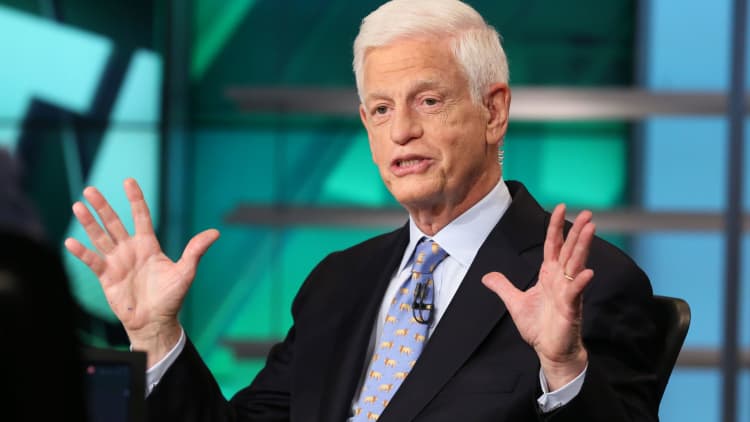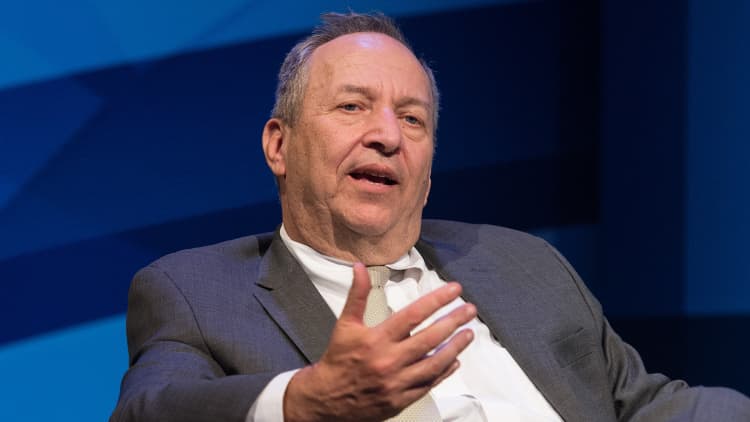Retirees are facing a tough decision: Should they make up for even less growth on their cash by ramping up stock exposure?
On Wednesday, the Federal Reserve lowered the federal funds rate — the interest rate banks charge to lend each other money — by 0.25%. The range is now 2.00% to 2.25%.
Rate cuts reduce interest costs for people with variable rate loans. At the same time, they also lower the interest credited to savings accounts and more.

Right now, online savings accounts are offering annual percentage yields as high as 3%.
The possibility of having those rates reduced is a scary one for retirees, and it may nudge them into chasing returns to sustain their standard of living.
"Every time they lower the rate, it makes people want to shift more aggressive," said Jeffrey Levine, CPA and CEO of BluePrint Wealth Alliance in Garden City, New York.
"Retirees who have taken more risk got away with it due to the long bull market, but when will it catch up?" he said. "Because at some point it has to."
The upward climb
Stock investors have been enjoying a decade-long bull run.
However, advisors are feeling cautious as of late, worrying that an economic downturn might be around the corner.
"The stock market has been hitting all-time highs, but the reason we're facing lower interest rates is because the economy seems to be slowing down and we're heading toward a recession," said Leon LaBrecque, certified financial planner and chief growth officer at Sequoia Financial Group in Troy, Michigan.
He noted that the yield curve had inverted earlier this year, meaning rates on short-term Treasurys were higher than rates on long-term Treasurys.
Essentially this means investors holding longer-term U.S. debt are being compensated less compared to those holding shorter-term issues.
Investors and economists interpret a yield curve inversion as a sign of an approaching recession.
A gut check
Advisors working with retirees and near-retirees are discouraging them from chasing riskier returns.
However, they are asking investors to think deeply about their ability to withstand a period of low interest rates and a market upheaval.
"Clients who are worried about stock market implosions may benefit from modifying their portfolio so that they don't have more than the appropriate amount of exposure to equities," said Vance Barse, a wealth strategist at Manning Wealth Management in San Diego.

He's addressing this by having clients complete a semi-annual risk tolerance questionnaire.
Retirees should also consider the purpose of the "safe money" they keep in money market funds and savings accounts.
"The conservative part of the portfolio is there to provide some diversification and buffer — it's a low bogey," said Randall S. Lee, a CFP and partner at TrustCore Financial Services in Brentwood, Tennessee.
"The coaching I've had to do with clients is to help them understand that their bogey isn't the S&P 500," he said. "You should be trying to make the rate of return you need to earn in your retirement plan.
"If you're hitting it, you're solid."
Finding yield
Advisors are recommending that their retired clients keep three to five years' worth of expenses in cash and cash-like instruments, including money market funds and Treasurys.
"Retirees should consider how to weather the storm safely, like maybe building a ladder of CDs to last two to three years or through a possible downturn," said LaBrecque of Sequoia Financial Group.
Top rates on three-year CDs are currently about 3%, according to Bankrate.com.
Older investors are also turning toward online banks that offer higher yields, said Lee of TrustCore.
Rates as high as 2.5% to even 3% are also available at a handful of web-based banks, although the average savings account interest rate is about 0.1%, according to Bankrate.com.
"A 2% bank deposit sounds paltry if we consider what interest rates were before the financial crisis," Lee said. "But with inflation still low, these low-risk assets are earning a real return."
More from Personal Finance:
Older Americans downsizing should brace for sticker shock
Here's how the Fed rate hike will affect your finances
What Social Security's budget woes mean for your retirement


